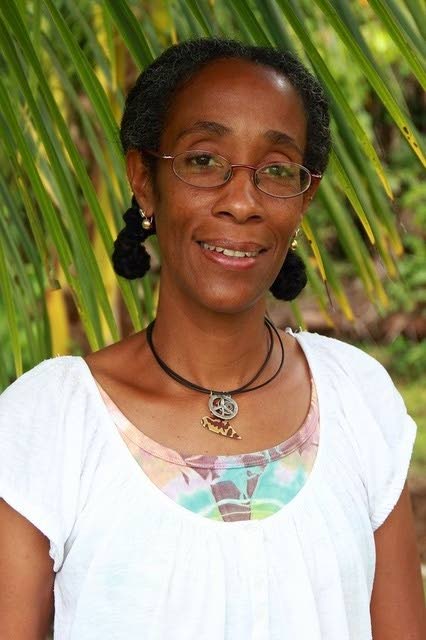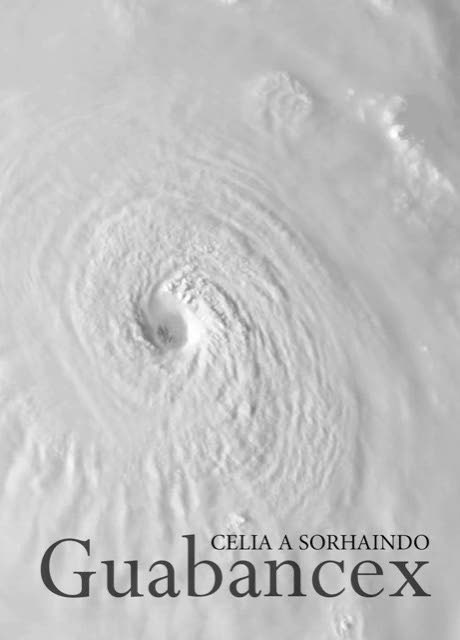Sorhaindo's poems aptly capture hurricane nightmare

JOHN ROBERT LEE
THE category 5 hurricanes Maria and Irma, which wreaked immeasurable destruction on several Caribbean islands, have also left in their wake creative literature.
The House of Nehesi Publishers, St Martin, have published Hurricane Protocol by Lasana M Sekou and After the storm by Tamara Groeneveldt. Loretta Collins Klobah, in the title poem of her collection Ricantations, has written how, in Puerto Rico:
“Boombox Maria, with her twisted dance track
of everything shattered, buckled and airborne,
sucked windows flapping, hammered house corners,
cisterns, fences and iron gates free-flying, hilltop
homes mud-sliding.”
Dominica suffered unimaginably from Hurricane Maria. Photographs showed a scorched-earth landscape, trees without leaves as though a nuclear holocaust had descended, and we got heart-wrenching stories from residents and journalists who recounted the horror suffered by this “nature isle.”
Papillote Press has published a poetry chapbook of the Dominican storm experience by Celia A Sorhaindo titled Guabancex.
According to an author’s note, Guabancex is the name given by the Taino to “the supreme female spiritual entity associated with all natural destructive forces.”
From the island that produced Jean Rhys, Phyllis Shand Allfrey, Elma Napier, Celia A Sorhaindo’s voice, in a first collection, is assured, the poems accomplished and reflective of contemporary styles in Caribbean and international poetry.
The forms of many of the poems mirror the chaotic, wind-tossed nightmare of the hurricane that devastated Dominica. A poem filled with words not metaphors, Invoked and Hurricane Praxis are, on the page, words flung about in the strong gusts of memory that evoke the terrifying and dislocating experience.

They record faithfully what happens during such an ordeal: religious faith is tested, relationships are strained to breaking point, flooding, mud, looting are the order of the long days and nights, desperate needs are unfulfilled for food, water, clothing and shelter, a day-to-day uncertainty hanging heavy over everything and everyone, young and old.
From the first poem, Sorhaindo lays it out uncompromisingly:
“im not going to sit here and paint a heavy hurricane picture for you to
visualize in pretty clever metaphor words will never carry you to what
its like actually lets just leave it like that words cannot ever take you there at all…
go out and experience it for your self
metaphor the world however you want”
The unpunctuated sentences suit well the disruption of life wrought by Maria.
If Invoked is one of the poems where words literally blow across the page like leaves or galvanise sheeting or roofs cast about in the 200-plus-miles-per hour winds, the long final poem titled Hurricane PraXis (Xorcising Maria Xperience) is, for me, the major piece in the slim collection.
Contemporary/modern in style, it could be produced as a great choral verse-drama with several voices performing it, accompanied by music, including Dominica’s jing-ping folk sounds. In several voices, it catalogues every conceivable effect of the storm on the lives of people across the society. Sorhaindo uses a counterpointing style to compare and contrast the details set out. Every line starts with “we,” except the last six, which begin with a self-revelatory “I.”
“we are grateful to be alive we are stunned to be still alive
we wade through dirty water we mop water mop water mop water
we wipe up water from places we did not imagine water could go
we use every single towel/absorbent cloth in the house
we have no house left…
we loot we have good good party with our loot we do not loot
we are fearful of looters we are angry with looters
we are angry with the police we are angry with each other
we lock the doors and windows we still have…”
This poem is a tour de force. And it ends with the kind of ambiguity, resignation, bewilderment, storm-shock that runs through it and the collection:
“I have
been left with
less left with more life to taste more to test
I have
been left
wholly changed unchanged.”
We must thank Polly Pattullo and Papillote Press for once again finding and bringing to us another talented Dominican voice.
In Celia Sorhaindo, that new voice speaks with sensitivity, maturity and assurance, a certain measured distance, out of a horrendous experience that is becoming more common in the Caribbean. Indeed, she brings us strong, moving words, not evasive metaphors as she insists, even though, to suit her ambiguities, the collection of poems becomes a strongly-imaged metaphor of our times.
John Robert Lee is a St Lucian writer. Pierrot, his new collection of poems, is just out from Peepal Tree Press. His Collected Poems 1975-2015 is published by Peepal Tree Press (2017); Saint Lucian Writers and Writing: an Author Index is published by Papillote Press (2019)

Comments
"Sorhaindo’s poems aptly capture hurricane nightmare"